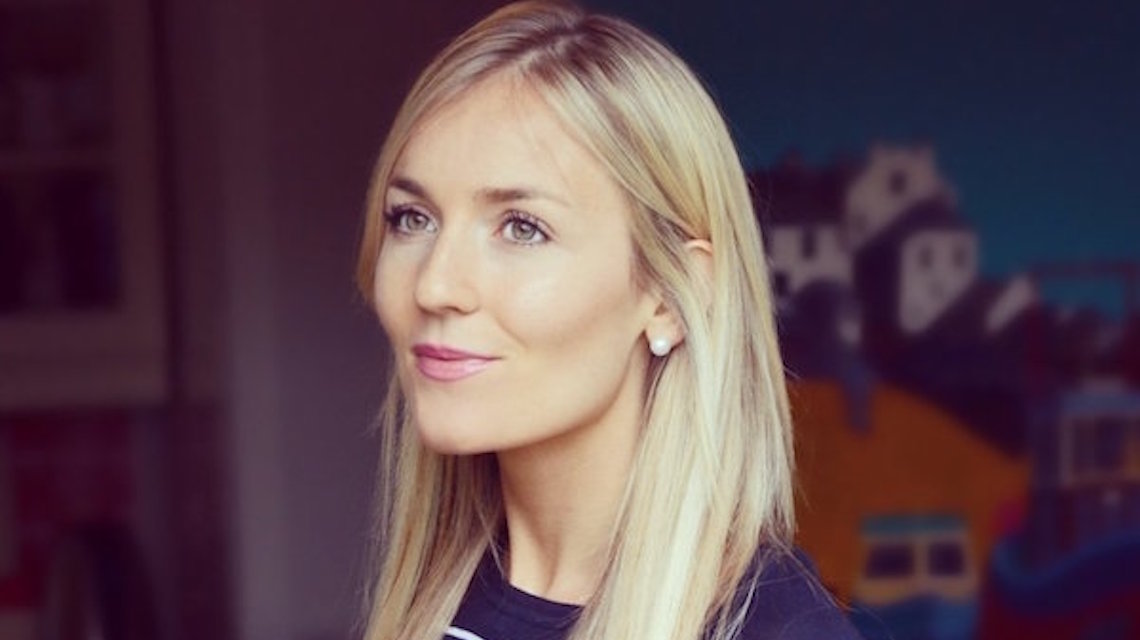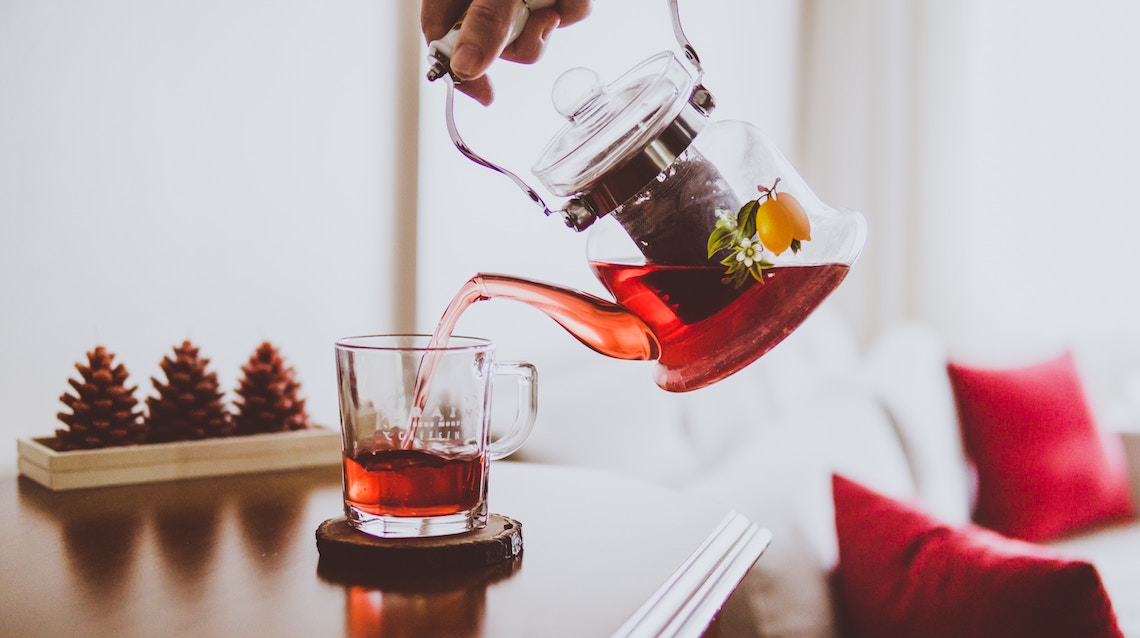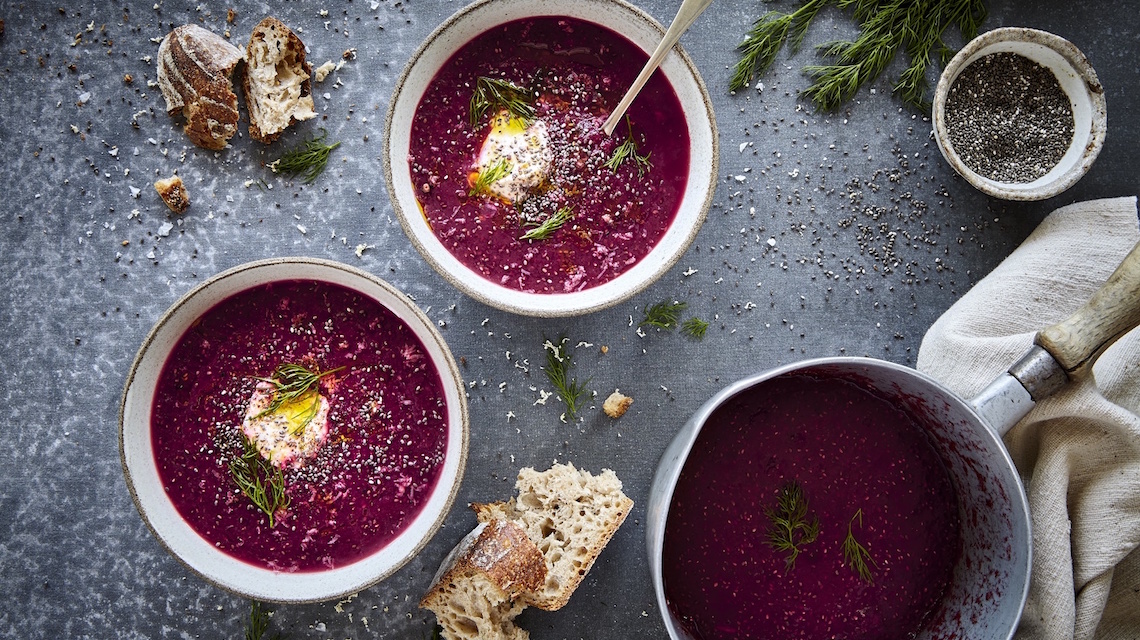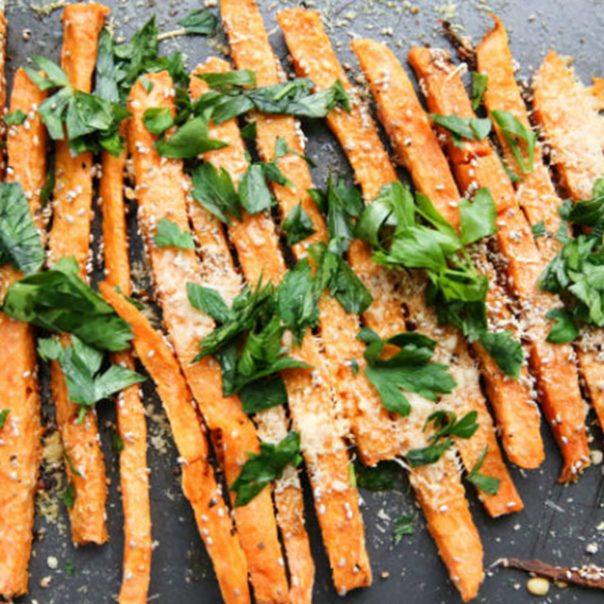Leading London Nutritionist Lily Soutter shares her top 10 ways to put a smile on your face this August.
As we edge into the final weeks of winter many of us will be feeling tired and sluggish. And, with sleeveless season on the horizon, it can be pretty tempting to embark on a quick-fix diet. But, this approach is unsustainable for long-term health and, quite frankly, takes a lot of pleasure out of our day.
Food is there for enjoyment as much as it is needed for nourishment. It’s totally possible to trim down whilst brightening up your August with a diet proven to benefit your mood, too. Here are my top 10 ways to ensure that your diet puts a smile on your face.
1: Balance blood sugar
White refined carbohydrates and sugary foods are absorbed quickly into the bloodstream. This may cause an initial ‘high’ or surge of energy that soon wears off. A blood sugar ‘high’ can often result in a blood sugar ‘crash,’ leaving us feeling tired and low.
To balance blood sugar make sure you include protein, fibre, and healthy fats into each meal and snack. All three components help to slow the release of sugar into the blood stream.
I love incorporating chia seeds into my cooking as they contain a whopping 11g fibre, 4g plant-based protein, and 9g of healthy fats per 2 tbsp.! This wholesome seed is a perfect combo for balancing blood sugar and keeping hunger at bay.
Other great options include: protein-rich beans and pulses, fibre packed wholegrains and essential fat rich oily fish.
2: Don’t skip meals
Ensure that you eat at least three meals a day. Skipping meals can lead to low blood sugar, which can result in low mood, anxiety, irritability, and fatigue.
3: Don’t skimp on omega 3 fats
Did you know that 60% of your brain is made up of fat? Most of these fats are similar to essential fats called omega 3’s that are found in oily fish and chia seeds.
A few studies suggest that supplementation of omega 3 fats may reduce symptoms in patients with depression and on antidepressant medication.
Choose: salmon, mackerel, herring, sardines anchovies, chia seeds, and chia seed oil.
4: Consume tryptophan-rich foods
Tryptophan is part of a protein molecule and is the precursor to our happy hormone serotonin. Consumption of foods rich in tryptophan such as meat, fish, eggs, milk, cheese, beans, lentils and even chia seeds can play an important role in influencing mood.
By combining 30g of carbohydrates with tryptophan-rich foods, you can boost absorption and utilisation drastically.
Choose: a slice of wholegrain bread topped with tryptophan-rich turkey, or a pot of yogurt with mixed fruit and chia seeds.
5: Don’t fear carbs
Unfortunately, many diets may encourage cutting carbs!
However, carbohydrates play a key role in transporting tryptophan to the brain, which is then converted to our happy hormone serotonin. Our brain also runs on glucose, which comes from the carbohydrates within our diet.
This means that a low mood can be a common side effect of very low carbohydrate diets.
Choose: wholegrain bread, wholegrain pasta, brown rice, oats, white or sweet potato with the skin, quinoa, buckwheat, beans, lentils, chickpeas, vegetables, fruit.
6: Vitamin B6
This water-soluble vitamin plays an essential role in the production of key neurotransmitters, which are involved with mood, including serotonin and dopamine.
Low levels of vitamin B6 have been associated with symptoms of depression as well as PMS and mood swings.
Choose: beans, nuts, legumes, eggs, meats, fish, whole grains, bananas, and fortified bread and cereals.
7: A healthy gut, a happy mind
90% of our serotonin is located in the gut, and only 10% is located in the brain. Scientists are now referring to our gut as our second brain, and the latest research has shown that our gut bacteria may influence how much serotonin we produce.
While the research is still relatively new and not yet conclusive, many of us could do with a little more good gut bacteria, due to widespread antibiotic use. Fibre is our gut’s best friend and the primary fuel for our good gut bacteria. Adults should aim for 30g per day, however most of us are only consuming 15-18g. Luckily foods such as chia seeds contain as much as much as 11g fibre per 2tsp!
Other ways to boost healthy gut bacteria include: Prebiotic foods such as Jerusalem artichokes, garlic, onions, leeks, dandelion greens, asparagus, unripe banana, chicory root, apples, oats, and flaxseeds; or Fermented foods (probiotics) like natural with live yogurt, sauerkraut, kefir, and kimchi
8: Don’t overdo the caffeine
Caffeine is a stimulant found in coffee, tea, chocolate and energy drinks. While we know that it in some people it can improve feelings of alertness, in others caffeine can affect mood and may result in anxiety.
If you notice that caffeine makes you feel jittery or anxious it may be time to cut back. Although caffeine is fine to have in moderation, it’s important to note that people’s sensitivity to caffeine can vary greatly.
Choose: calming herbal teas such as chamomile, lemon balm, and lavender.
9: Top up on the sunshine vitamin!
Vitamin D is referred to as the sunshine vitamin for good reason. This vitamin is manufactured by the body in response to sunlight reaching our skin. This means that there is an increased risk of developing a deficiency during the dark winter months.
Interesting research has also shown that supplementation with vitamin D may reduce symptoms of depression and Seasonal Affective Disorder, which occur during the winter months!! However, it’s important to note that positive outcomes with supplementation have only been shown in those with very low levels of vitamin D.
Vitamin D can be found in foods such as oily fish and egg yolk.
10. Shake up your winter meal plan for a healthier & happier you…
- Breakfast – Chia jam & coconut yoghurt on seeded wholegrain toast
- Lunch – Sweet potato jacket topped with tuna, lime, chilli, chia & yoghurt dressing
- Dinner – Beetroot & chia soup topped with a creamy horseradish sauce and dill, served with crusty bread & olive oil
About Lily:
Lily graduated from Newcastle University with a BSc (Hons) degree in Food and Human Nutrition (AfN accredited) where she was awarded with the Sage Faculty for Excellence Scholarship. She then went on to gain a Nutritional Therapy Diploma from the Institute of Optimum Nutrition.
Lily’s extensive knowledge of the science of food and health, enables her to regularly write for The Times, The Telegraph, The Daily Mail, The Independent, Women’s Health and Cosmopolitan. Her frequent TV appearances include ITV’s prime time series Save Money: Lose Weight with Dr Ranj Singh.
Lily sees clients from her clinic in Chelsea and from the Portobello Clinic, a private medical practice based in Notting Hill.
Instagram: Lily_Soutter_Nutrition
Facebook: Lily Soutter Nutrition
Twitter: lilysoutter
Beetroot and Chia Soup image courtesy of Georgia Gold.




